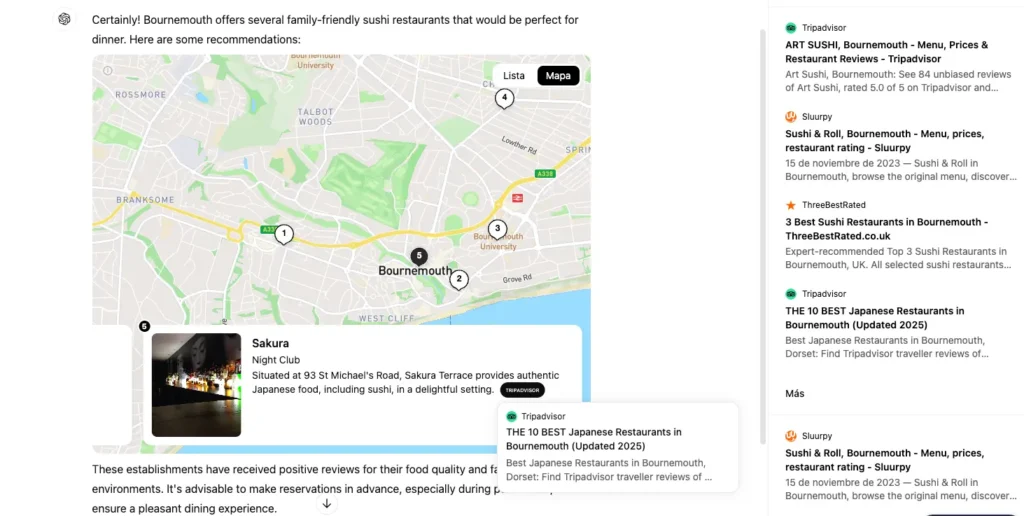

Generative Engine Optimization (GEO) represents the next evolutionary step in the field of search engine optimisation. Unlike traditional SEO, which relies heavily on keywords and link-based results, GEO leverages the power of AI-driven search engines to understand and deliver results based on context, natural language, and user intent.
At its core, GEO focuses on optimising websites and web content to maximise visibility across AI-driven platforms such as ChatGPT, Perplexity, Gemini, Copilot, and Google AI Overviews. These tools analyse and summarise vast amounts of data to provide users with direct answers or actionable recommendations, making it essential for businesses to adapt their strategies to align with this new paradigm.
AI has advanced tremendously in recent years, particularly in conversational language understanding and multimodal search capabilities like visual and voice search. GEO strategies emphasise creating content that aligns with these advancements, enabling businesses to appear in two primary ways: as direct citations in AI-generated responses or as recommended resources. Both forms of visibility not only drive traffic but also bolster brand reputation and authority.
With GEO, the focus extends beyond traditional search visibility to ensure that content is designed for AI interpretation. This includes conversational tones, and structured data to ensure efficient parsing and prioritisation by AI systems. By integrating these elements, businesses can thrive in the evolving search landscape, leveraging GEO to achieve exponential growth in both reach and influence.
AI has advanced tremendously in recent years, particularly in conversational language understanding and multimodal search capabilities like visual and voice search. Tools such as Google Lens, which now serves over 10 billion users monthly, or ChatGPT’s voice prompt integration highlight this shift. With GEO, the focus is on creating content that aligns with these advancements, enabling users to interact naturally and receive direct, actionable insights.
While both GEO and SEO aim to optimise content for better visibility, their methodologies differ significantly. Here’s an expanded breakdown of how they contrast:
By focusing on these complementary strategies, businesses can effectively bridge traditional SEO methods with GEO, creating a robust framework that adapts to both established and emerging search environments.
In addition to these differences, GEO’s reliance on conversational AI interfaces revolutionises user engagement. Instead of relying on static pages, it fosters dynamic dialogues that keep users immersed in their search journey. As Statista predicts, by 2027, over 90 million people in the US alone will use generative AI as their primary tool for online searches. This underscores the growing necessity of adapting to GEO strategies that are centred around the evolving digital behaviour of users.
Statista: By 2027, over 90 million people in the U.S. will use generative AI as their primary tool for online search
Despite their differences, GEO and SEO share foundational principles. These similarities are crucial for developing a unified strategy that maximises the strengths of both approaches:
These shared principles enable businesses to align GEO and SEO strategies effectively, ensuring a cohesive approach to increasing visibility, enhancing user experience, and meeting evolving search engine requirements.
To thrive in the era of GEO, businesses must adapt their strategies to cater to AI-powered search engines. Key optimisation tactics include:

The journey of search optimisation has evolved from traditional methods to Search Generative Experience (SGE) and now GEO. Each phase reflects advancements in technology and user behaviour:
This evolution underscores the importance of adapting strategies to stay ahead in the digital landscape.
Google has been vocal about the impact of generative AI on search, actively demonstrating its commitment to this shift through innovations like Bard, later rebranded as Gemini. These tools underline Google’s push towards conversational and contextual search capabilities. Recently, Google introduced Sora and continues to refine its AI-driven offerings, including AI overviews that provide summarised insights directly within the search results.
Despite these advancements, Google emphasises that creators do not need to take any extraordinary steps to be included in these systems. Instead, they advise adhering to existing guidelines outlined in Google Search Essentials, which focus on creating high-quality, relevant, and well-structured content.
To succeed in the GEO landscape, implement these actionable strategies:
By embracing these strategies, businesses can ensure their content thrives in both traditional and AI-driven search environments.
Generative Engine Optimisation is not just the future of search; it is the present. However, the search landscape remains far from fully defined. Unlike in the past, where Google dictated the trajectory of search engines, players like OpenAI are now forcing Google into radical changes. These shifts leave many questions unanswered about the role of content in the new era of search.
Content remains the backbone of both AI systems and search engines. Yet, with fewer users visiting websites directly, monetisation challenges for content creators loom large. Without sustainable revenue models, content creation could dwindle, disrupting the ecosystem that AI and search engines rely on.
From my perspective, while the evolution of search is undeniable, traditional SEO strategies remain vital for securing positions in the “10 blue links” and driving traffic. Furthermore, success in GEO demands incorporating three critical areas into any SEO strategy: the use of Schema Markup to appear in rich snippets, the adoption of conversational language, and a focus on E-E-A-T to establish authority both online and within specific markets. By integrating these elements, businesses can navigate the uncertainties of the present while preparing for the future.
Moreover, this evolving landscape presents immense opportunities for newcomers. Embracing GEO principles and aligning them with your SEO strategies can set the stage for exponential growth. By acting early and embedding these aspects into your business strategy, you not only adapt to the future but position yourself as a pioneer in an increasingly AI-driven world, ready to leverage the potential of this exciting and transformative era.
References

Digital Marketing Consultant specialised in SEO, eCommerce and Advertising on Google, Meta and Amazon. I offer SEO and eCommerce auditing services, advertising campaign management, and advanced data analysis solutions with Python and SQL. My goal is to help businesses improve their visibility and maximise their return on investment.